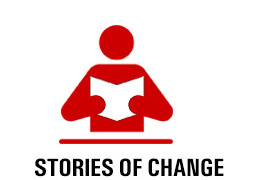
Sukarya’s Gender Equality Programme is designed to educate and empower adolescent girls (10-19 years) on sexual and reproductive health. It takes a deep dive into issues that affect their basic human rights, knowledge and awareness levels with respect to gender, social justice, family life and employability.
Nearly 10% (120 million) of India’s total population comprises of adolescents. A big share of these adolescents, especially in rural and slum communities are impacted with deep-rooted socio-cultural customs and norms that leave them powerless and vulnerable.
Issues of concern
Child marriage, early and repeated motherhood, lack of education, ill-health, gender-based violence and discrimination, and even trafficking form a complex cause-and-effect web that entraps many girls. They suffer infant, child and maternal mortality rates, early and child marriages, discontinuation of education and greater risk of an inter-generational cycle of poverty – all of which further marginalises adolescent girls and women.
Sukarya has been educating and empowering adolescent girls across schools and slum communities in Delhi and Haryana since 2017 with a customised curriculum that addresses adolescent health, menstrual hygiene, nutrition, family life skills and gender knowledge while instilling confidence and leadership skills so they can fight against economic and social inequalities. These efforts are showing remarkable change in the mindset of this young audience. In the last three years, the programme has empowered 3000 adolescent girls in slum communities and schools with over 120 turning peer leaders.
Managing during situations like COVID-19
As per the 2011 Census, about 1.8 million live in the slums of Delhi and during a pandemic like Covid-19 prevention, control and preparedness are formidable to say the least. Sukarya’s experience lends itself to setting up initiatives related to Water, Sanitation & Hygiene (WASH) for effective community engagement and to ensure prevention from pandemics.
Future plans
- Upscale and empower 5000 adolescent girls who will not only bring desired changes to strengthening the community but also act as frontline volunteers striving to ensure better health outcomes; and
- Work more closely with schools and provide adolescent girls healthy food, IFA supplements and fortified foods. Also help them delay their first pregnancy and protect themselves from sexually transmitted infections and other diseases




